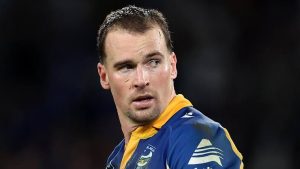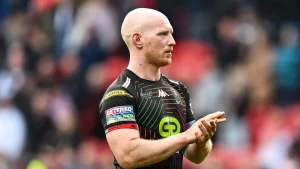
Shocking Confession: Ex-NBA Star’s Daughter Declares “Caitlin Clark Is NOT an All-Time College Basketball Great”—Find Out Why She Believes Angel Reese’s ‘Villain’ Role Actually Elevated Clark’s Legacy! The Bold Statement That’s Dividing Fans and Changing the Conversation—What Did She Reveal About the Rivalry, and How Could This Controversial Opinion Reshape the Way We Remember Women’s College Basketball? Dive Into the Explosive Debate and Discover the Truth Behind the Headlines!
In the world of sports, few topics generate as much passion and debate as the legacies of great athletes. Recently, a controversial statement from the daughter of an ex-NBA star has stirred conversations about one of college basketball’s brightest stars, Caitlin Clark. Her assertion that “Caitlin Clark is NOT an all-time college basketball great” has ignited a firestorm of discussion among fans and analysts alike. Even more intriguingly, she argues that Angel Reese’s so-called “villain” role during their highly-publicized rivalry has, in fact, enhanced Clark’s legacy.
#### The Bold Statements
The remarks surfaced in an interview, where the ex-NBA star’s daughter shared her unfiltered thoughts on the Caitlin Clark-Angel Reese rivalry. “While Caitlin is undeniably talented, I believe the narrative around her needs to be challenged,” she stated. “The perception of her as an all-time great is inflated, especially when you consider how the narrative has shifted with Angel’s performance and persona.”
Her opinion hinges on the belief that the drama surrounding Reese’s “villain” role has drawn more attention to Clark, consequently elevating her status in the public’s eye. By positioning Reese as the antagonist, it has allowed Clark to play the part of the protagonist, effectively shining a brighter light on her achievements.
#### The Rivalry Explained
The rivalry between Caitlin Clark and Angel Reese reached new heights during the 2023 NCAA Women’s Basketball Championship, where their contrasting styles and personalities became front and center. Clark, known for her incredible shooting range and fiery competitiveness, gained a massive following for her on-court prowess. Conversely, Reese’s unapologetic demeanor and clutch performances garnered attention, framing her as a “villain” in the eyes of some fans and pundits.
This rivalry encapsulated not only a clash of talents but also a clash of narratives. While Clark wowed audiences with high-scoring performances, Reese’s ability to thrive under pressure made her equally compelling. The drama culminated in heated exchanges and a battle for supremacy that transcended the sport, sparking discussions about race, gender, and the role of athletes in shaping their identities.
#### Divided Fans and New Perspectives
The ex-NBA star’s daughter’s controversial statement has, naturally, sparked a divide among fans. For some, her perspective offers a refreshing take on the evolving landscape of women’s college basketball. Supporters of Clark argue that her individual accolades, including multiple Player of the Year awards and record-breaking performances, should solidify her place in history, irrespective of her rival’s narrative.
Opponents, however, see merit in the idea that Clark’s image might be intertwined with Reese’s portrayal as a villain. They argue that the dynamic between the two players has added layers to their legacies, and the rivalry itself can enhance the stories told about their respective careers.
#### Reshaping the Narrative of Women’s College Basketball
What’s most striking about this debate is its potential to reshape the narrative surrounding women’s college basketball. Traditionally, women’s sports narratives have focused on individual accomplishments, but the interplay of rivalries and personal dynamics could foster deeper discussions about the sport overall.
As fans reflect on these differing perspectives, it raises crucial questions: How do rivalries affect the legacies of athletes? Can the narrative surrounding a player enhance or detract from their accomplishments? And what role do culture and media play in shaping how we remember athletes?
#### Conclusion
With discussions around Caitlin Clark and Angel Reese gaining momentum, the future of women’s college basketball is poised for exciting transformations. The bold statement from the ex-NBA star’s daughter has shaken the foundation of defining greatness in sports. It invites fans to reconsider what it means to be an all-time great and emphasizes the importance of rivalries in shaping legacies.
As this conversation unfolds, one thing is clear: the stories of Clark and Reese, marked by competition and contrasting narratives, will continue to captivate audiences and stir discourse. It serves as a reminder that in the world of sports, the legacies of athletes are seldom black and white; they are painted in shades of conflict, complexity, and camaraderie.







